
Interlaken: A Swiss Paradise Between Lakes and Peaks
Nestled between Lake Thun and Lake Brienz, Interlaken is a charming resort town in the heart of the Swiss Alps. Renowned for its stunning natural beauty, Interlaken offers breathtaking views of the Eiger, Mönch, and Jungfrau mountains. This picturesque locale serves as a gateway for numerous outdoor adventures, making it a haven for thrill-seekers and nature lovers alike. Interlaken's rich history can be traced back to the 12th century, and its name, meaning 'between lakes,' perfectly describes its unique geographical setting. The town itself is filled with quaint shops, traditional Swiss restaurants, and cozy cafes that provide a delightful blend of modern amenities and old-world charm. Whether you're strolling along the Höhematte, a vast open space offering panoramic mountain views, or exploring the historic Unterseen district, Interlaken has something for everyone. For the adventurous at heart, Interlaken is a hub for a variety of outdoor activities such as paragliding, skiing, and hiking. The nearby Jungfraujoch, known as the 'Top of Europe,' is accessible via a scenic train ride and offers unparalleled views of the Aletsch Glacier. Water enthusiasts will enjoy activities on the crystal-clear lakes, including boat tours, kayaking, and even diving. With its perfect blend of natural beauty, rich culture, and endless adventure, Interlaken is a must-visit destination in Switzerland.
Local tips in Interlaken
- Visit during the off-season to avoid crowds and enjoy a more peaceful experience.
- Purchase a Swiss Travel Pass for unlimited travel on the country's extensive public transport network.
- Take the Harderbahn funicular to Harder Kulm for stunning panoramic views of Interlaken.
- Book your Jungfraujoch tickets in advance, especially during peak season.
- Try traditional Swiss dishes like fondue and raclette at local restaurants for an authentic culinary experience.
- Wear layers and bring waterproof clothing, as weather in the Alps can be unpredictable.
Interlaken: A Swiss Paradise Between Lakes and Peaks
Nestled between Lake Thun and Lake Brienz, Interlaken is a charming resort town in the heart of the Swiss Alps. Renowned for its stunning natural beauty, Interlaken offers breathtaking views of the Eiger, Mönch, and Jungfrau mountains. This picturesque locale serves as a gateway for numerous outdoor adventures, making it a haven for thrill-seekers and nature lovers alike. Interlaken's rich history can be traced back to the 12th century, and its name, meaning 'between lakes,' perfectly describes its unique geographical setting. The town itself is filled with quaint shops, traditional Swiss restaurants, and cozy cafes that provide a delightful blend of modern amenities and old-world charm. Whether you're strolling along the Höhematte, a vast open space offering panoramic mountain views, or exploring the historic Unterseen district, Interlaken has something for everyone. For the adventurous at heart, Interlaken is a hub for a variety of outdoor activities such as paragliding, skiing, and hiking. The nearby Jungfraujoch, known as the 'Top of Europe,' is accessible via a scenic train ride and offers unparalleled views of the Aletsch Glacier. Water enthusiasts will enjoy activities on the crystal-clear lakes, including boat tours, kayaking, and even diving. With its perfect blend of natural beauty, rich culture, and endless adventure, Interlaken is a must-visit destination in Switzerland.
When is the best time to go to Interlaken?
Iconic landmarks you can’t miss
St. Beatus-Höhlen, Swiss Caves
Discover the captivating St. Beatus-Höhlen Caves, where natural wonders and legends unite in the heart of Switzerland's breathtaking landscapes.
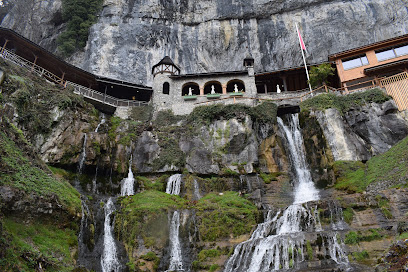
Höhematte
Experience the breathtaking beauty of Höhematte, a serene park in Interlaken, Switzerland, surrounded by majestic mountains and vibrant gardens.
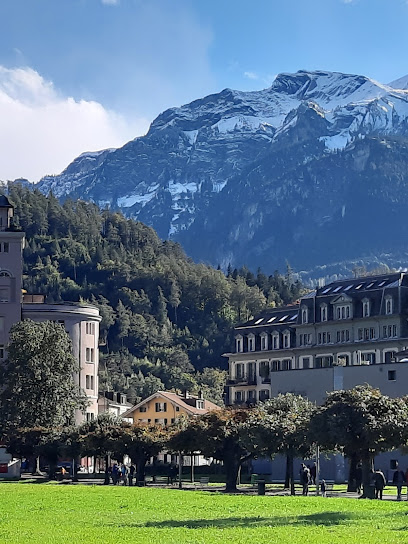
Yash Chopra Statue
Experience the charm of Interlaken at the Yash Chopra Statue, a tribute to India's legendary filmmaker amidst stunning Swiss landscapes.
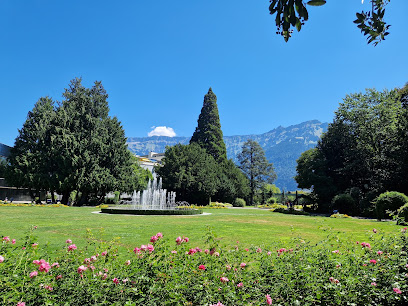
Victoria-Jungfrau Grand Hotel & Spa
Experience luxury and breathtaking views at the Victoria-Jungfrau Grand Hotel & Spa in Interlaken, the ultimate Swiss retreat for discerning travelers.
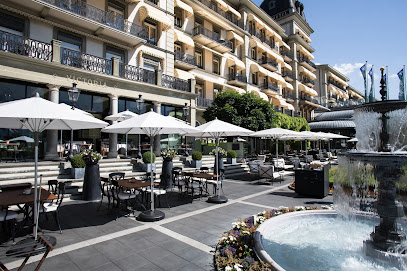
Harder Kulm
Experience the breathtaking views from Harder Kulm, where Swiss Alps meet serene lakes in an unforgettable landscape.
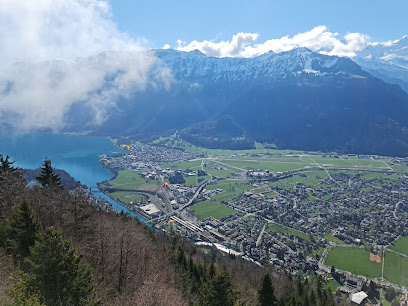
OUTDOOR - Interlaken Ropes Park / Seilpark
Experience the exhilarating heights and stunning landscapes at Interlaken Ropes Park, your adventure hub in the Swiss Alps.
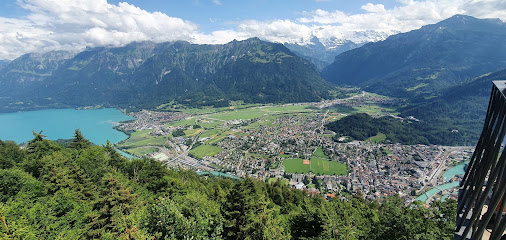
OUTDOOR - Interlaken Base
Discover the ultimate thrill at Interlaken Base, your go-to destination for outdoor adventures in the heart of the Swiss Alps, from bungee jumping to skiing.
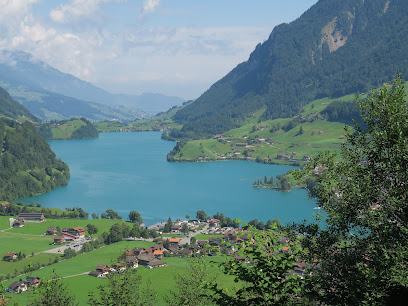
Casino Interlaken AG
Discover the thrill of gaming and exquisite dining at Casino Interlaken, a premier attraction nestled in the breathtaking Swiss Alps.
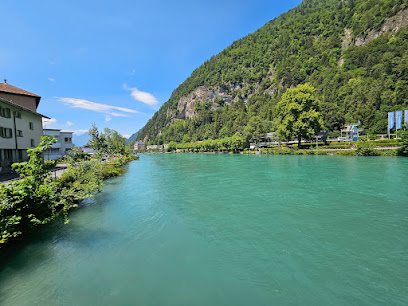
JungfrauPark Interlaken
Explore JungfrauPark Interlaken: A family-friendly amusement park featuring thrilling rides and stunning alpine views, perfect for all ages.
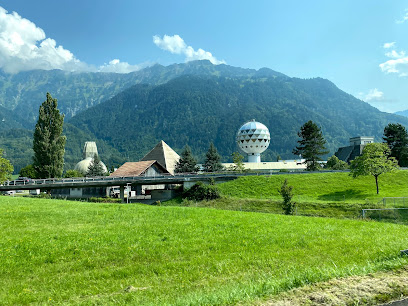
Kursaal
Experience the blend of culture, nature, and entertainment at Kursaal, the heart of Interlaken, Switzerland, where unforgettable moments await.
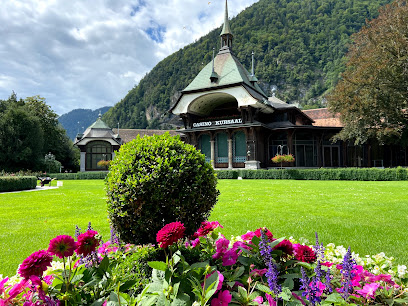
Hang Gliding Interlaken
Experience the ultimate thrill of hang gliding in Interlaken, soaring over breathtaking landscapes and majestic Swiss Alps for an unforgettable adventure.
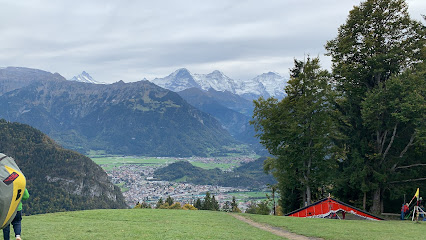
Naturschutzgebiet Weissenau
Explore the enchanting Weissenau Nature Preserve in Unterseen, where breathtaking landscapes and diverse wildlife await every nature lover.
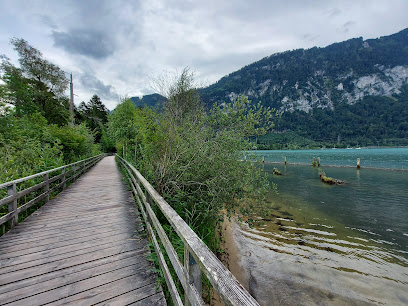
Interlaken Ost
Discover the Swiss Alps from Interlaken Ost, your gateway to breathtaking landscapes, charming villages, and unforgettable adventures in the heart of Switzerland.
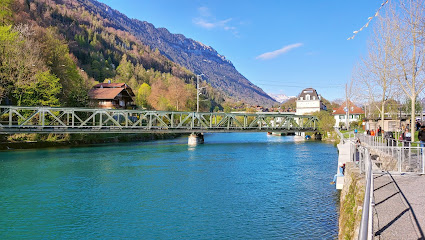
Ruine Weissenau
Discover the historic charm of Ruine Weissenau in Unterseen, a beautiful ruin set against stunning alpine landscapes perfect for hiking and exploration.
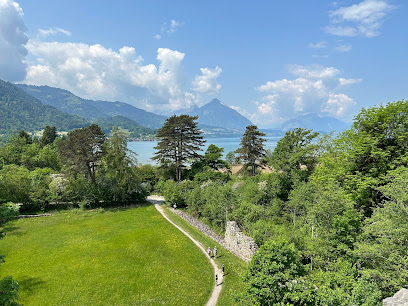
Interlaken West
Experience the Swiss Alps from Interlaken West Station, your gateway to breathtaking landscapes, charming villages, and unforgettable adventures.
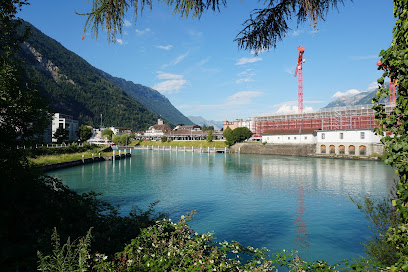
Unmissable attractions to see
Titlis Cliff Walk
Discover the breathtaking heights of Titlis Cliff Walk, Switzerland's highest suspension bridge, and immerse yourself in stunning alpine views.
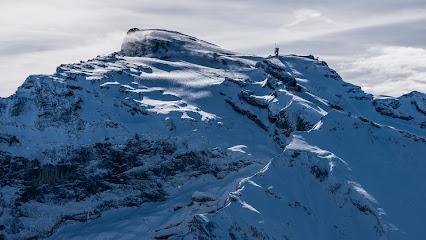
BearPark
Explore BearPark in Bern, where conservation meets recreation amidst the enchanting world of bears in a stunning natural setting.
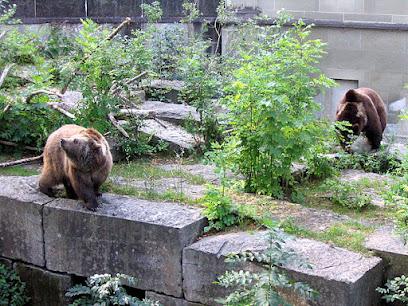
St. Beatus-Höhlen, Swiss Caves
Explore the St. Beatus-Höhlen, a stunning cave system in Switzerland with breathtaking formations, rich history, and scenic views of Lake Thun.
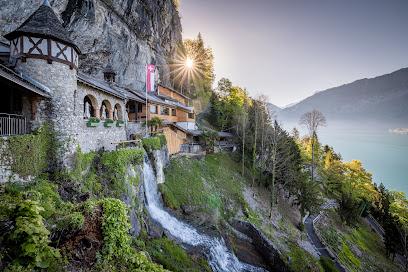
Ballenberg, Swiss Open-Air Museum
Explore the captivating heritage of Switzerland at Ballenberg, an open-air museum showcasing traditional architecture, crafts, and rural life.
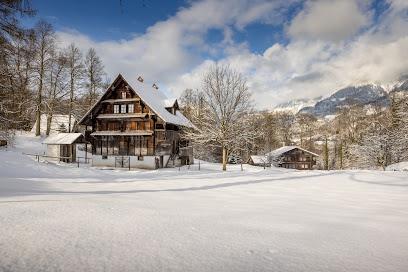
Dählhölzli
Explore Dählhölzli Zoo in Bern, a family-friendly adventure filled with diverse wildlife and scenic beauty by the Aare River.
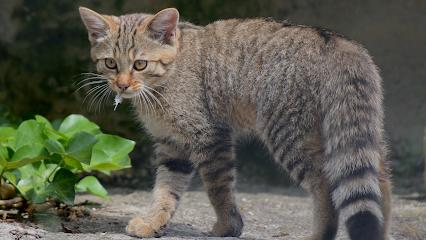
Naturpark Blausee
Experience the natural beauty of Naturpark Blausee, a serene retreat perfect for hiking, picnicking, and wildlife watching in the heart of Switzerland.
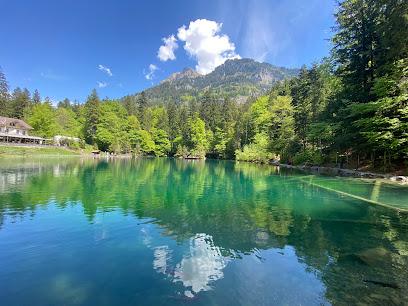
Jungfraujoch Sphinx Observatory
Discover the breathtaking views from the Jungfraujoch Sphinx Observatory, the highest railway station in Europe, nestled in the heart of the Swiss Alps.
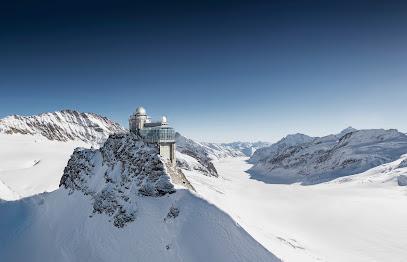
Wankdorf Stadium
Discover Wankdorf Stadium in Bern - a modern sports venue that brings excitement, culture, and unforgettable experiences to every visitor.
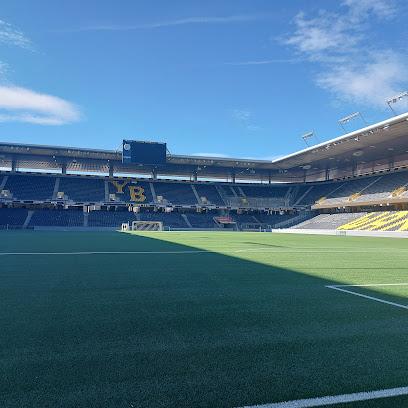
UNESCO - Bern Old Town
Discover the enchanting Bern Old Town, a UNESCO World Heritage site filled with historic charm, stunning architecture, and vibrant culture.
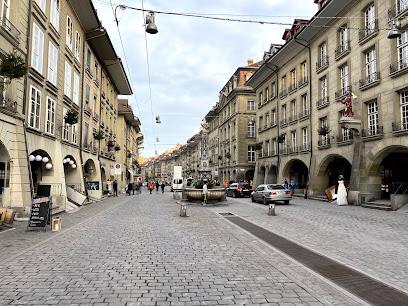
Cathedral of Bern
Discover the breathtaking Gothic architecture and rich history of the Cathedral of Bern, Switzerland's tallest cathedral and a must-visit attraction.
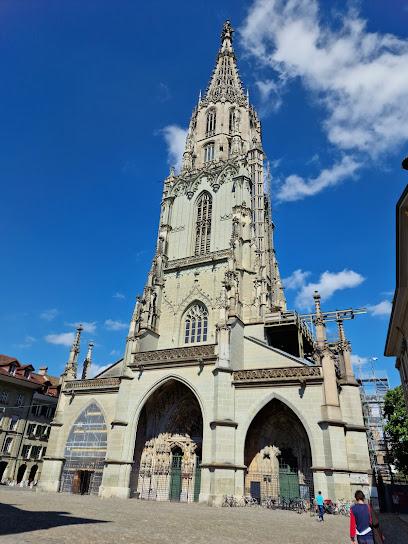
Giessbach Waterfalls
Discover the breathtaking Giessbach Waterfalls in Brienz, Switzerland, where nature's beauty meets adventure amidst the Swiss Alps.
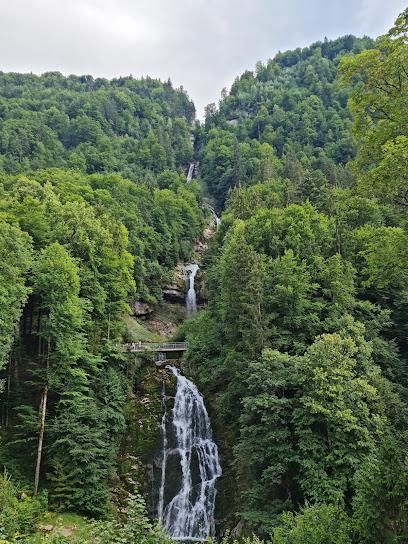
Aareschlucht
Experience the breathtaking beauty of Aareschlucht, a stunning gorge in Switzerland with dramatic cliffs and clear river waters, perfect for nature lovers.
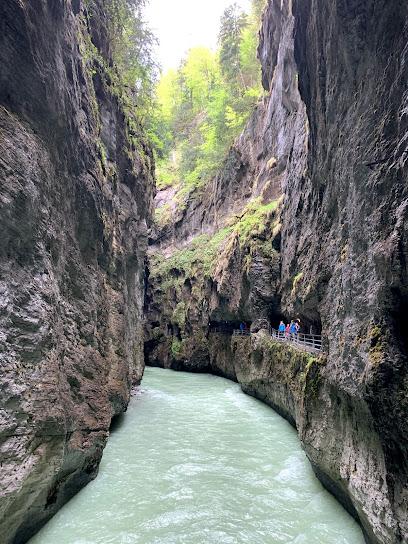
Piz Gloria
Discover the breathtaking beauty and adventure at Schilthorn, the iconic Piz Gloria in the Swiss Alps, offering stunning views, dining, and hiking.
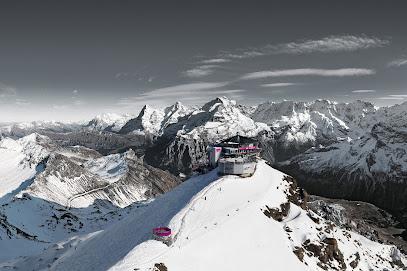
Pilatus-Bahnen AG
Experience breathtaking views and thrilling adventures at Pilatus-Bahnen AG, the iconic mountain cable car in Kriens, Switzerland.
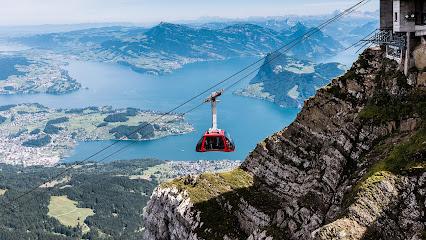
Thun Castle
Explore Thun Castle: A majestic medieval fortress with rich history, breathtaking views, and captivating exhibits in the heart of Switzerland.
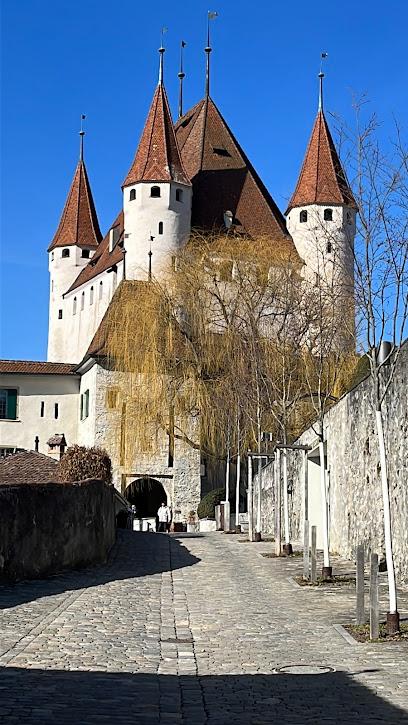
Essential places to dine
Aare Korean BBQ Restaurant
Experience authentic Korean barbecue at Aare Korean BBQ Restaurant in Interlaken—where flavors meet tradition in every bite.
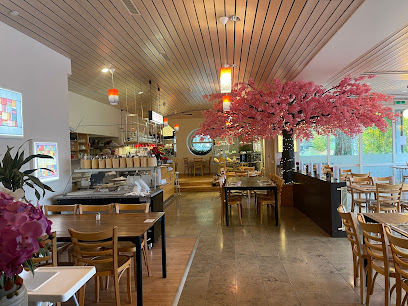
Asllanis Corner
Discover Asllanis Corner in Interlaken – where gourmet hamburgers meet local charm and unforgettable flavors.
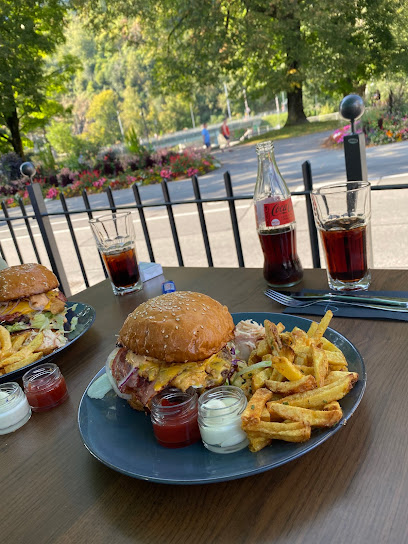
Hüsi Bierhaus
Experience authentic Swiss cuisine at Hüsi Bierhaus in Interlaken – where flavor meets tradition amidst breathtaking alpine views.
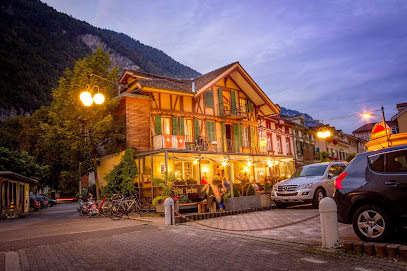
Café de Paris
Experience culinary excellence at Café de Paris in Interlaken – where Swiss charm meets delightful flavors.
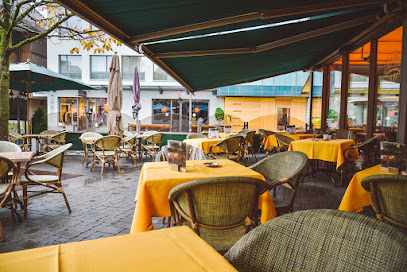
MAHARAJA Indian Restaurant
Experience authentic Indian flavors at MAHARAJA Indian Restaurant in Interlaken – a must-visit destination for food lovers seeking delicious Punjabi cuisine.
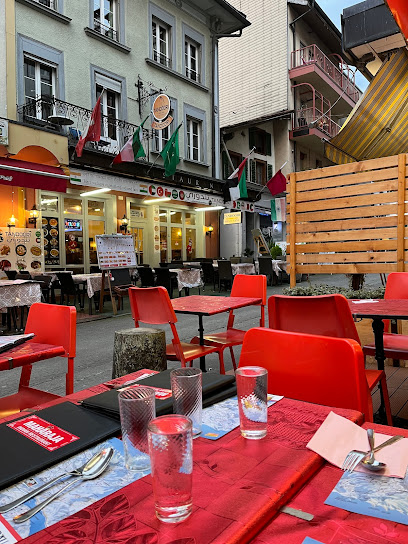
OX Restaurant & Grill
Experience the best of Swiss cuisine and barbecue delights at OX Restaurant & Grill in beautiful Interlaken.
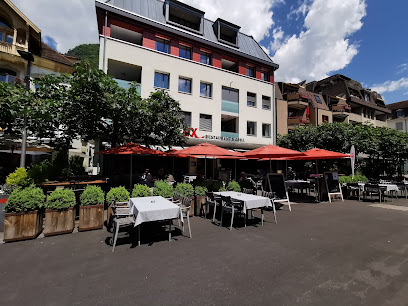
Grand Café-Restaurant Schuh
Experience exquisite Swiss cuisine amidst breathtaking mountain views at Grand Café-Restaurant Schuh in Interlaken.
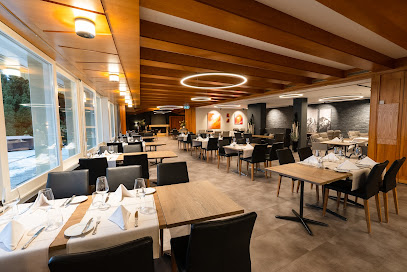
Hotel & Restaurant Krebs with Garden-Terrace
Discover authentic Swiss cuisine and charming hospitality at Hotel & Restaurant Krebs in scenic Interlaken.
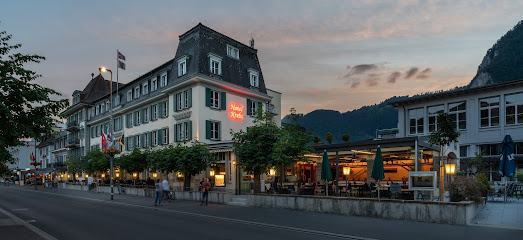
India Village Restaurant
Savor authentic Indian cuisine at India Village Restaurant in Interlaken – a haven for food lovers with vegan and halal options.
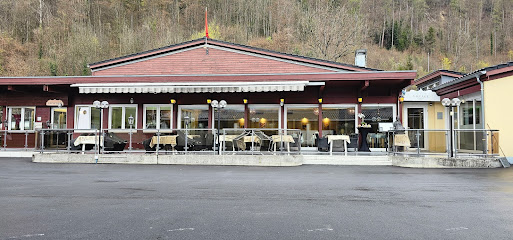
Ristorante e Pizzeria Sapori
Experience authentic Italian flavors at Ristorante e Pizzeria Sapori in Interlaken – where every meal is a celebration of taste and tradition.
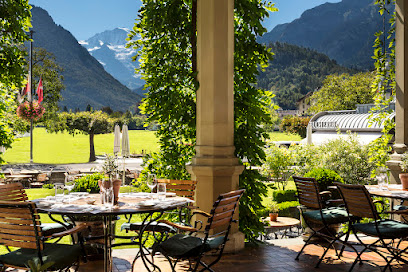
Pizpaz
Experience the best of Italian cuisine at Pizpaz in Interlaken – where every meal is a celebration of flavors and warmth.
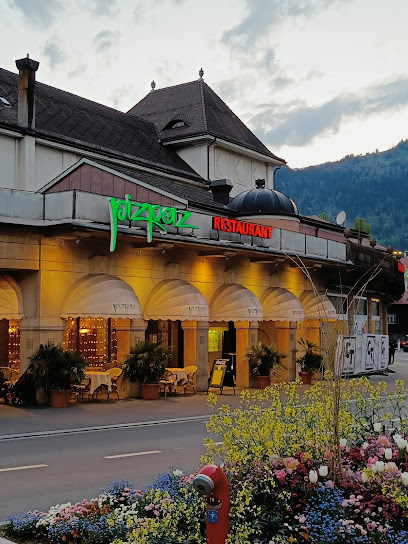
Spice Village Indian Restaurant &Tandoori Specialist
Savor authentic Indian flavors at Spice Village in Interlaken – where every dish tells a story!
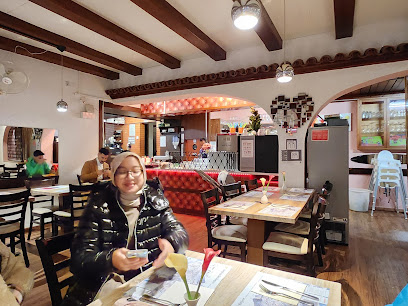
Bebbis
Experience authentic Swiss fondue at Bebbis in Interlaken – where rich flavors meet cozy ambiance.
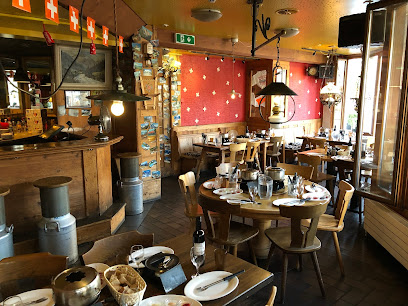
Taj Palace
Experience authentic Indian cuisine at Taj Palace in Interlaken - a culinary delight with vibrant flavors and warm hospitality.
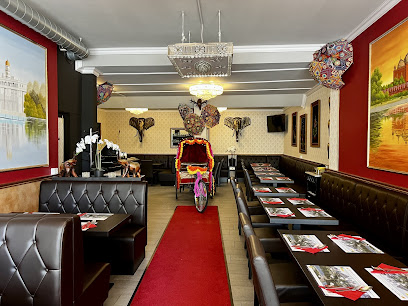
El Azteca
Experience authentic Mexican cuisine at El Azteca in Interlaken - where every dish tells a story.
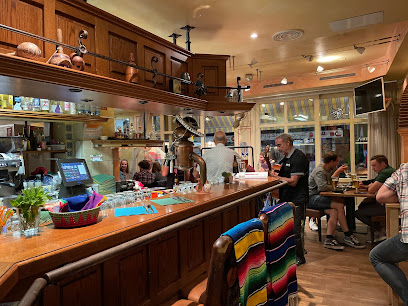
Markets, malls and hidden boutiques
Kirchhofer – Casino Gallery
Discover luxury timepieces and expert craftsmanship at Kirchhofer – Casino Gallery in beautiful Interlaken, Switzerland.
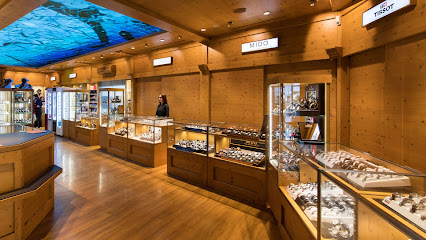
Marko Market
Explore Marko Market in Interlaken for authentic Swiss souvenirs, exquisite knives, and unique gifts capturing the essence of Swiss culture.
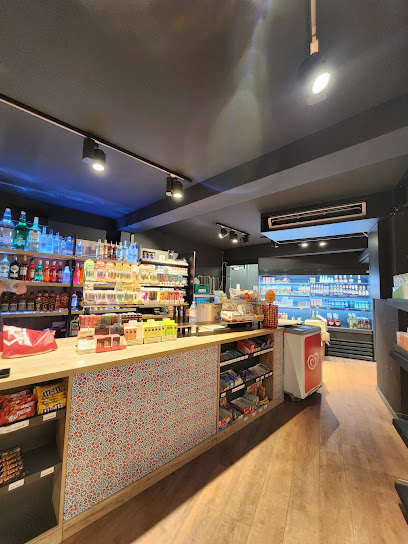
BÖDELI CENTER
Explore BÖDELI CENTER in Interlaken for unbeatable deals on groceries, unique second-hand treasures, and architectural artifacts.
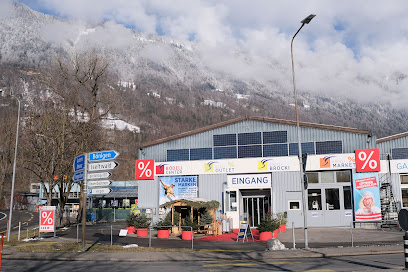
Läderach
Experience the artistry of Swiss chocolate at Läderach in Interlaken, where every bite is a blissful indulgence.
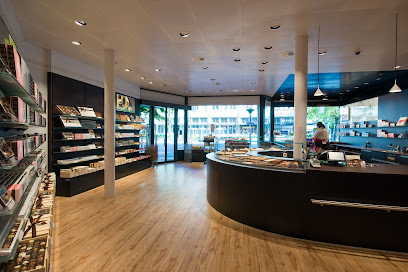
Splendid Interlaken
Experience the vibrant shopping scene at Splendid Interlaken—a blend of fashion, souvenirs, and local charm in the heart of Switzerland.
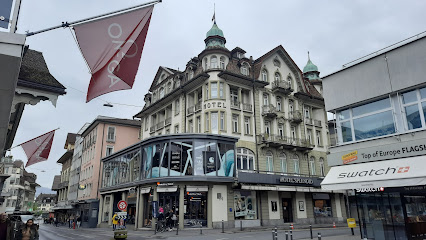
Splendidpop
Discover a shopping haven in Interlaken with unique clothing, jewelry, and souvenirs at Splendidpop, where style meets Swiss charm.
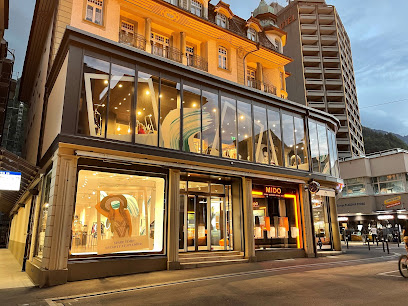
Bucherer
Discover luxury at Bucherer in Interlaken, Switzerland, where exquisite watches and jewelry meet stunning Alpine views.
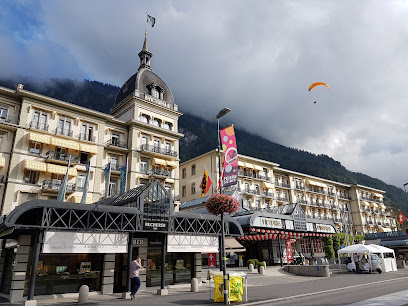
Top of Europe Flagship Store
Explore the Top of Europe Flagship Store for unique Swiss souvenirs, chocolates, and quality craftsmanship in the heart of Interlaken.
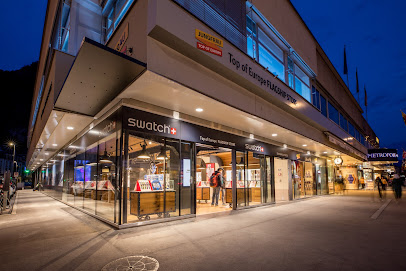
Swiss Chocolate Chalet Interlaken
Discover the heart of Swiss chocolate-making at Swiss Chocolate Chalet in Interlaken, where every bite is a journey into sweetness and tradition.
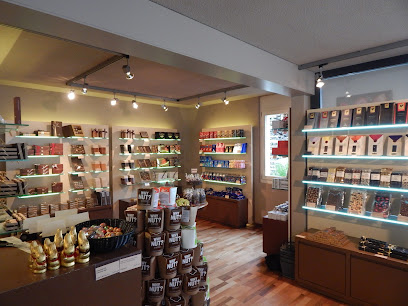
Wyss Souvenirs
Explore Wyss Souvenirs in Interlaken for authentic Swiss gifts and crafts, capturing the essence of your Swiss adventure.
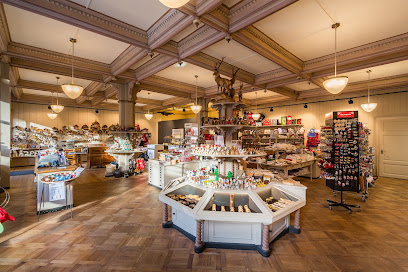
Heimatwerk Interlaken
Explore Heimatwerk Interlaken for authentic Swiss gifts, crafts, and souvenirs that embody the spirit of Switzerland.
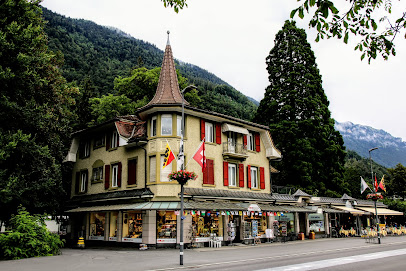
Kirchhofer – Lifestyle
Explore Kirchhofer - Lifestyle in Interlaken for an unparalleled selection of premium cosmetics and skincare products in a luxurious shopping environment.
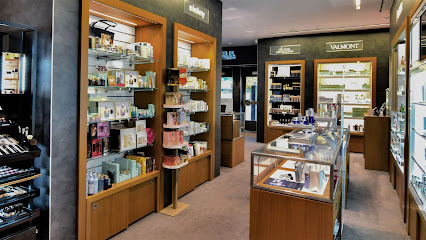
Edelweiss Shop - Swiss Souvenir, Schweizer Souvenirs, Souvenir Store - Interlaken
Discover authentic Swiss souvenirs at Edelweiss Shop in Interlaken, where quality meets tradition in a charming shopping haven.
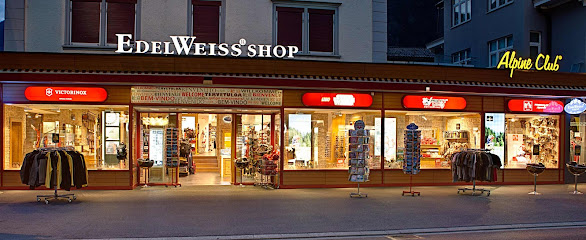
City Shop
Discover the flavors of Switzerland at City Shop in Interlaken, your go-to grocery store for local and international delicacies.
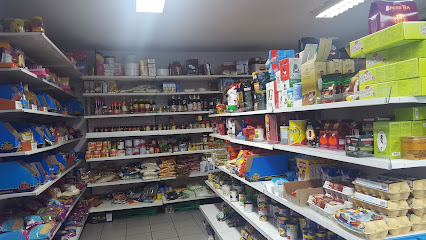
Gallery Metropole
Discover the elegance of Swiss craftsmanship at Gallery Metropole, your go-to destination for exquisite watches and unique souvenirs in Interlaken.
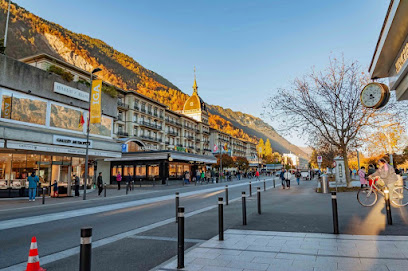
Essential bars & hidden hideouts
Hüsi Bierhaus
Discover authentic Swiss cuisine and local brews at Hüsi Bierhaus, the heart of Interlaken's vibrant dining scene.
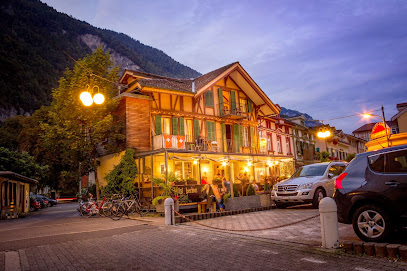
Brasserie 17-Happy Inn Lodge
Experience the perfect blend of Swiss tradition and modern cuisine at Brasserie 17 in scenic Interlaken.
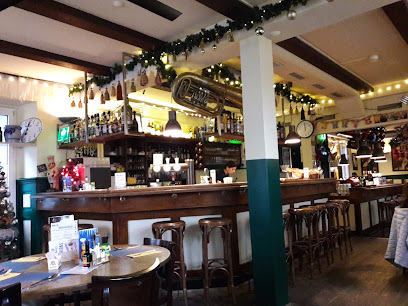
Jamming Corner
Jamming Corner: A vibrant bar and lounge in Unterseen, known for unique cocktails and a lively atmosphere perfect for nightlife.
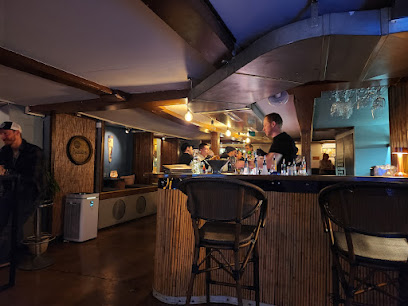
Barracuda Cafe & Bar
Experience the vibrant atmosphere and local flavors at Barracuda Cafe & Bar in the scenic Matten bei Interlaken.
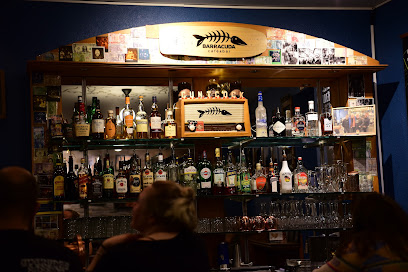
Tivoli Café Bar
Experience the cozy charm of Tivoli Café Bar in Interlaken, offering a delightful selection of drinks and a vibrant atmosphere for tourists.
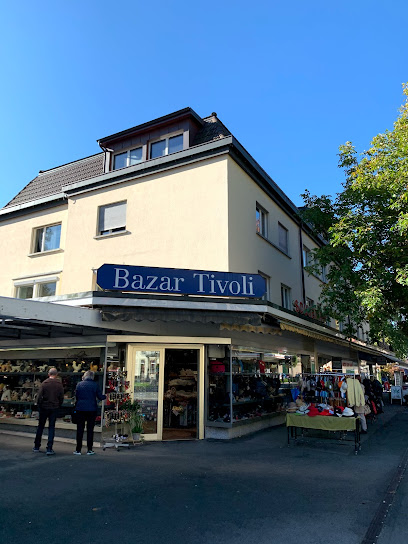
Crazy Mary
Experience the vibrant atmosphere of Crazy Mary, a lively pub in Interlaken, featuring great food, live music, and unforgettable nights.
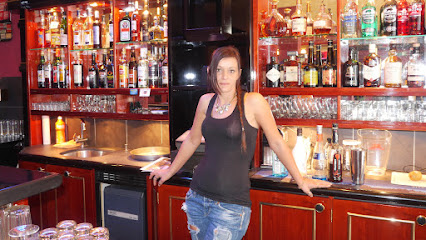
Hangar 32
Experience the charm of vintage aviation at Hangar 32, a unique bar offering delightful drinks and a captivating atmosphere in Unterseen.
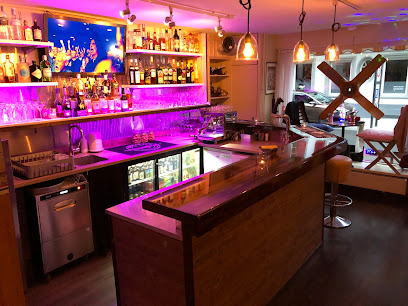
Restaurant & Bar Lisi
Experience the perfect blend of culinary excellence and vibrant atmosphere at Restaurant & Bar Lisi in Interlaken, Switzerland.
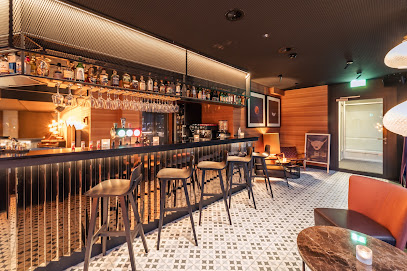
irish pub interlaken
Experience the lively spirit of Ireland in the heart of Switzerland at the Irish Pub in Interlaken.
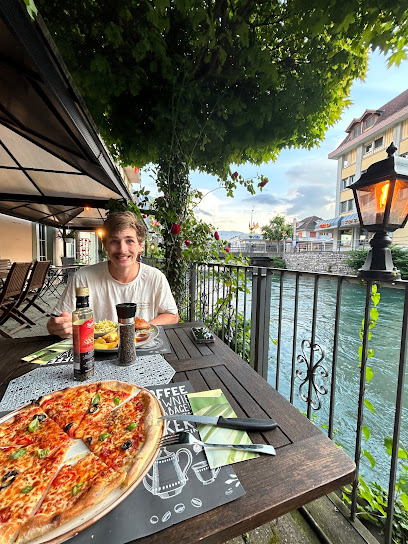
NaBene - Café Bar & mehr
Experience the charm of Interlaken at NaBene - Café Bar, where delicious beverages and a cozy atmosphere await every visitor.
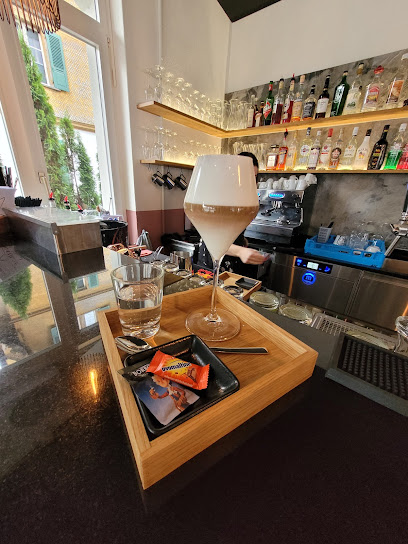
Balmers Bar & Club
Discover the heartbeat of nightlife in Matten bei Interlaken at Balmers Bar & Club, where fun, music, and connections come alive.
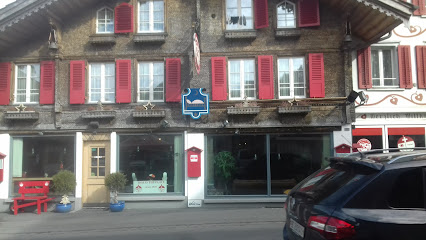
Riff Raff
Experience the vibrant nightlife at Riff Raff, Interlaken's favorite bar, where music, drinks, and fun come together in perfect harmony.
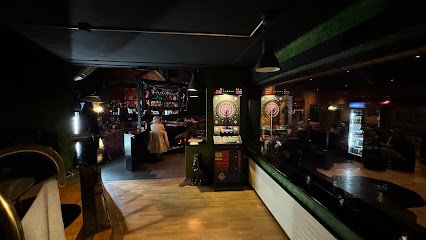
Buddy's Pub
Experience the charm of Buddy's Pub, a cozy bar in Interlaken offering local beers, hearty snacks, and a welcoming atmosphere for all.
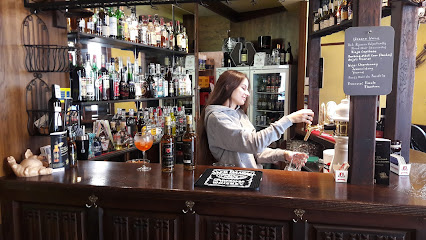
Galway Quay’s
Experience the lively charm of Galway Quay's, an Irish bar in Unterseen, offering great drinks, live music, and a welcoming atmosphere.
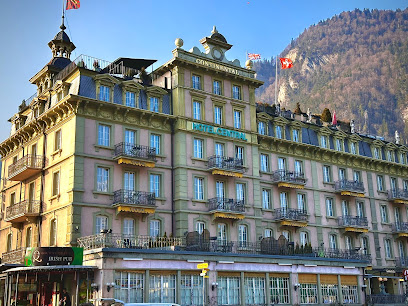
Local Phrases
-
- HelloGuten Tag
[goo-ten tahg] - GoodbyeAuf Wiedersehen
[ouf vee-dur-zay-en] - YesJa
[yah] - NoNein
[nine] - Please/You're welcomeBitte
[bih-tuh] - Thank youDanke
[dahn-kuh] - Excuse me/SorryEntschuldigung
[ent-shool-dee-gung] - How are you?Wie geht es Ihnen?
[vee gayt es een-en] - Fine. And you?Gut. Und Ihnen?
[goot oont een-en] - Do you speak English?Sprechen Sie Englisch?
[shprek-en zee eng-leesh] - I don't understandIch verstehe nicht
[eekh fair-shtay-uh nikht]
- HelloGuten Tag
-
- I'd like to see the menu, pleaseIch möchte die Speisekarte sehen, bitte
[eekh meer-khte dee spay-zuh-kahr-tuh zay-en, bih-tuh] - I don't eat meatIch esse kein Fleisch
[eekh ess-uh kine flysh] - Cheers!Prost!
[prohst] - I would like to pay, pleaseIch möchte bitte zahlen
[eekh meer-khte bih-tuh tsah-len]
- I'd like to see the menu, pleaseIch möchte die Speisekarte sehen, bitte
-
- Help!Hilfe!
[hil-fuh] - Go away!Gehen Sie weg!
[gey-en zee vayg] - Call the Police!Rufen Sie die Polizei!
[roo-fen zee dee poh-lee-tsai] - Call a doctor!Rufen Sie einen Arzt!
[roo-fen zee ine-en ahrts] - I'm lostIch habe mich verirrt
[eekh hah-buh meesh fair-eert] - I'm illIch bin krank
[eekh been krahng]
- Help!Hilfe!
-
- I'd like to buy...Ich möchte kaufen...
[eekh meer-khte kou-fen] - I'm just lookingIch schaue nur
[eekh shou-uh noor] - How much is it?Wie viel kostet es?
[vee feel kohs-tet es] - That's too expensiveDas ist zu teuer
[dahs ist tsoo toy-er] - Can you lower the price?Können Sie den Preis senken?
[ker-nen zee den prees zen-ken]
- I'd like to buy...Ich möchte kaufen...
-
- What time is it?Wie spät ist es?
[vee shpayt ist es] - It's one o'clockEs ist ein Uhr
[es ist ine oor] - Half past (10)Halb zehn
[halb tsayn] - MorningMorgen
[mohr-gen] - AfternoonNachmittag
[nahkh-mit-tahg] - EveningAbend
[ah-bent] - YesterdayGestern
[geys-tern] - TodayHeute
[hoy-tuh] - TomorrowMorgen
[mohr-gen] - 1eins
[ines] - 2zwei
[tsvay] - 3drei
[dry] - 4vier
[feer] - 5fünf
[foonf] - 6sechs
[zex] - 7sieben
[zee-ben] - 8acht
[ahkt] - 9neun
[noyn] - 10zehn
[tsayn]
- What time is it?Wie spät ist es?
-
- Where's a/the...?Wo ist ein/der...?
[voh ist ine/der] - What's the address?Was ist die Adresse?
[vahs ist dee ah-dreh-suh] - Can you show me (on the map)?Können Sie mir das zeigen (auf der Karte)?
[ker-nen zee meer das tsay-gen (ouf der kar-tuh)] - When's the next (bus)?Wann kommt der nächste (Bus)?
[vahn kohmt der naykhs-te (boos)] - A ticket (to ....)Eine Fahrkarte (nach ...)
[ine fahr-kahr-te (nahkh)]
- Where's a/the...?Wo ist ein/der...?
History of Interlaken
-
Interlaken, nestled between Lake Thun and Lake Brienz, has a rich history that dates back to the early Middle Ages. The area was initially settled by the Celts and later by the Romans, who recognized its strategic importance. Despite its remote location, Interlaken became a critical point for trade routes that connected different parts of Europe.
-
In the 12th century, Interlaken gained prominence with the founding of the Augustinian Monastery in 1133. This monastery became a center of religious, cultural, and economic life in the region. It was during this period that the town began to develop its unique identity. The monastery's influence extended well beyond its walls, shaping the cultural and spiritual landscape of Interlaken.
-
The Protestant Reformation in the 16th century brought significant changes to Interlaken. The monastery was secularized in 1528, and its lands and buildings were transferred to the state. This period marked a shift in the town’s religious and social structure, leading to new forms of community organization and governance.
-
Interlaken's transformation into a tourist destination began in the early 19th century. With the advent of the railway in the mid-1800s, the town became more accessible to visitors. Pioneering tourists, including notable figures like Johann Wolfgang von Goethe and Felix Mendelssohn, were captivated by its stunning natural beauty. The town's tourism industry grew rapidly, with hotels, restaurants, and other amenities springing up to cater to the influx of visitors.
-
The late 19th and early 20th centuries marked the golden age of tourism in Interlaken. The construction of grand hotels like the Victoria Jungfrau in 1865 attracted an elite clientele from across the globe. This period also saw the development of infrastructure such as the funicular to Harder Kulm in 1908, enhancing the town's appeal as a premiere holiday destination. The picturesque landscapes and the advent of winter sports further solidified Interlaken’s status in the tourism world.
-
Interlaken, like much of Switzerland, remained neutral during both World War I and World War II. However, the wars had indirect impacts on the town. During these periods, tourism declined sharply, and the local economy had to adapt to the changing circumstances. Despite these challenges, Interlaken managed to maintain its charm and continued to draw visitors once peace was restored.
-
Today, Interlaken is a vibrant hub of outdoor activities, cultural events, and natural wonder. It has successfully blended its rich historical heritage with modern amenities, offering a unique experience for visitors. The annual Unspunnenfest, a traditional Swiss festival, and the Greenfield Festival, one of Switzerland's largest rock music festivals, showcase the diverse cultural fabric of the town.
Interlaken Essentials
-
Interlaken is located in the heart of the Bernese Oberland region in Switzerland. The nearest international airports are Zurich Airport (ZRH) and Geneva Airport (GVA), both of which are approximately 2 to 3 hours away by train. From either airport, you can take a direct train or transfer at Bern or Lucerne. The Swiss Federal Railways (SBB) provides efficient and scenic train services to Interlaken. Alternatively, if you're driving, the town is well-connected by Swiss highways.
-
Interlaken is a compact town, and many attractions are within walking distance. For exploring the surrounding areas, the town is well-served by local buses and trains. The regional transportation network, including trains operated by BOB (Berner Oberland Bahn) and buses by PostBus, is reliable and punctual. Renting a bicycle or an electric scooter is also a popular option. Taxis are available but can be expensive compared to public transport.
-
The official currency in Switzerland is the Swiss Franc (CHF). Credit and debit cards are widely accepted in hotels, restaurants, and shops. However, it's advisable to carry some cash, especially for smaller establishments and in more remote areas. ATMs are readily available throughout Interlaken. Currency exchange services can be found at banks and exchange offices.
-
Interlaken is generally a safe destination for tourists. However, petty crime such as pickpocketing can occur, especially in crowded areas like train stations and popular tourist spots. It is advisable to keep an eye on your belongings and avoid leaving valuables unattended. There are no specific high-crime areas targeting tourists, but it's always best to stay vigilant and aware of your surroundings.
-
In case of emergency, dial 112 for immediate assistance. The local police, fire department, and medical services are efficient and responsive. Interlaken has a regional hospital with emergency services. It is recommended to have travel insurance that covers medical emergencies. Pharmacies are available in the town for minor health issues and over-the-counter medications.
-
Fashion: Do dress comfortably and in layers, as the weather can change rapidly. Avoid wearing overly casual or revealing clothing in upscale establishments. Religion: Do respect local customs and traditions. While Switzerland is largely secular, be mindful when visiting churches and religious sites. Public Transport: Do be punctual and validate your ticket before boarding. Don’t speak loudly or disturb other passengers. Greetings: Do greet people with a friendly 'Gruezi' or 'Hallo.' A handshake is common. Eating & Drinking: Do try the local cuisine, including Swiss chocolate and cheese. Don’t tip excessively; a service charge is usually included in the bill.
-
To experience Interlaken like a local, visit the weekly markets where you can buy fresh produce and local crafts. Engage with locals, who are often friendly and willing to share their knowledge of the area. Don’t miss exploring the lesser-known hiking trails and scenic spots around Lake Thun and Lake Brienz. For a unique experience, take a boat tour on either lake or a funicular ride up to Harder Kulm for panoramic views of the region.
Trending Landmark in Interlaken
-
St. Beatus-Höhlen, Swiss Caves
-
Höhematte
-
Yash Chopra Statue
-
Victoria-Jungfrau Grand Hotel & Spa
-
Harder Kulm
-
OUTDOOR - Interlaken Ropes Park / Seilpark
-
OUTDOOR - Interlaken Base
-
Casino Interlaken AG
-
JungfrauPark Interlaken
-
Kursaal
-
Hang Gliding Interlaken
-
Naturschutzgebiet Weissenau
-
Interlaken Ost
-
Ruine Weissenau
-
Interlaken West
Nearby Cities to Interlaken
-
Things To Do in Murren
-
Things To Do in Grindelwald
-
Things To Do in Thun
-
Things To Do in Bern
-
Things To Do in Lucerne
-
Things To Do in Zermatt
-
Things To Do in Montreux
-
Things To Do in Vevey
-
Things To Do in Ascona
-
Things To Do in Locarno
-
Things To Do in Zurich
-
Things To Do in Lausanne
-
Things To Do in Basel
-
Things To Do in Lugano
-
Things To Do in Balzers













